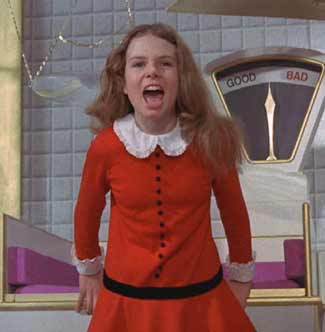“What kind of paradise am I looking for? I’ve got everything I want and I still want more.—”
Ani DiFranco (2001)
 Let me ask you a question: have you ever gone to a store or the mall and found yourself wanting to buy something even though at home you already had an older version of what you wanted? Maybe you had the iPad 1 when you decided you wanted the iPad 2. Or Maybe you wanted to buy a flat-screen T.V. when at home you already had a perfectly good T.V. Given that 98% of Americans own a T.V., and most homes have more T.V.s than people, it is likely that most people purchased a flat-screen T.V. when they already owned another T.V.
Let me ask you a question: have you ever gone to a store or the mall and found yourself wanting to buy something even though at home you already had an older version of what you wanted? Maybe you had the iPad 1 when you decided you wanted the iPad 2. Or Maybe you wanted to buy a flat-screen T.V. when at home you already had a perfectly good T.V. Given that 98% of Americans own a T.V., and most homes have more T.V.s than people, it is likely that most people purchased a flat-screen T.V. when they already owned another T.V.
Recently, there has been a lot of discussion concerning the impact of the perceived obsolescence of last year’s fad on our happiness and overall well-being. You may have seen The Story of Stuff by Annie Leonard, where she shows that marketing campaigns try to convince people that they will be socially isolated or low on the social totem pole if they do not buy the latest technology. However, until recently, there had been little research on the emotional costs of wanting more.
In the article “Wanting More Than You Have and its Consequences for Well-Being“, psychologists J. Ian Norris and Jeff Larsen determined to test if wanting more is related to happiness. In their study, people took several surveys: the Satisfaction with Life Scale, a Consumer Values Orientation Scale, and answered questions about wanting more material items than what one has (such as clothing, electronics and video games) compared to wanting what one already has. Norris and Larsen found that wanting more is related to less well-being. However, interestingly, they also found that there is no relationship between wanting more and less well-being as long as the individual wants what she or he already has as well. So, as long as a person appreciates their current possessions, wanting more does not seem to be harmful to well-being.
Here at Beyond The Purchase we are interested in how your spending habits impact your happiness. We invite you to take our surveys to explore your own consumption, happiness, and values and to come to your own conclusions about how your money can make you a happier person.
This post was contributed by Alison Wu, a graduate student in the Personality and Well-being Lab at San Francisco State University.


Congrats on your new blog! Lots of good stuff here, and I’m so glad you’re doing this work! I also wonder about the good side of shopping — farmers markets, for example, can be very social, very relational building. I wrote about this aspect — http://happinessparadigm.wordpress.com/2011/12/18/is-shopping-bad/
What do you think about this question?
Right on. I write a lot on these topics on my blog, Albertideation. I am especially enjoying a decision I made a while back to ditch my cellphone. That has been one of the best moves of my life.